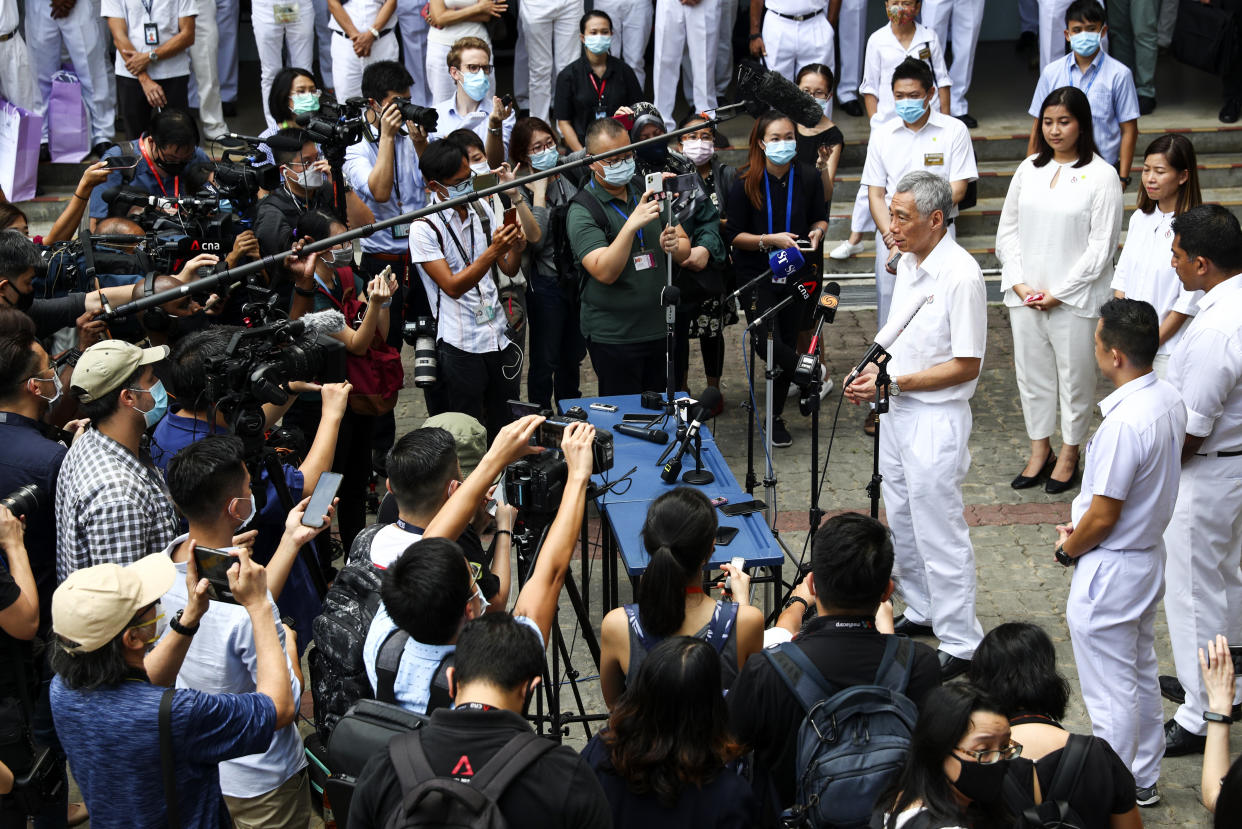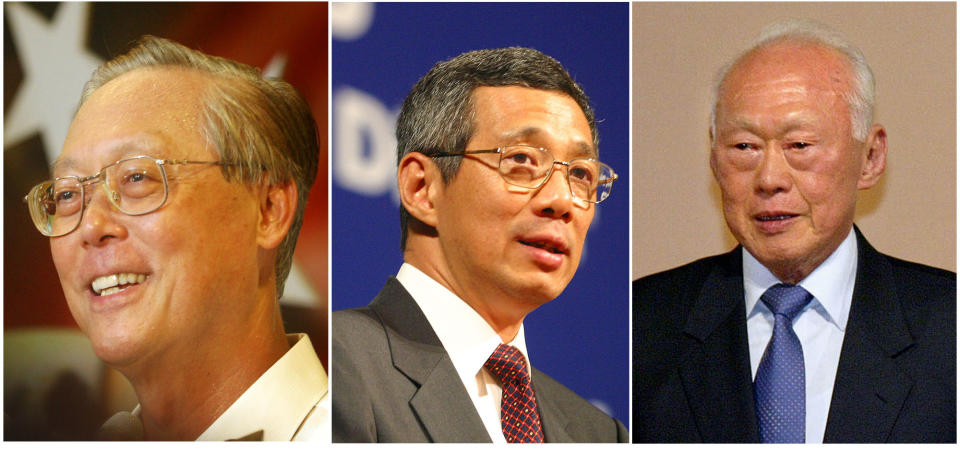COMMENT: Cabinet changes show Singapore’s political succession is faltering

SINGAPORE — The latest Cabinet reshuffle is yet another clear indication that Singapore’s chest-thumping boast of its proud record of smooth political succession is slowly but steadily beginning to falter. For the first time in the country’s history, there is no clear politician in sight to take over from the Prime Minister, even if Deputy PM Heng Swee Keat remains the official front runner.
Unpredictability was never a feature of previous handovers. Singaporeans knew Goh Chok Tong would succeed Lee Kuan Yew way before the country’s founding Prime Minister stepped aside, while Lee Hsien Loong was anointed long before Goh stepped down. But this time round, that predictability is missing.
There was an opportunity to erase the doubts about succession when the PM announced his new Cabinet line-up on Saturday (25 July). But when Lee was asked about Heng’s position as his designated successor, the Prime Minister deflected the question to Minister of Trade and Industry Chan Chun Sing, the man said to be third in line.
Chan seemed a little taken aback, but managed to regain his composure somewhat and said that the 4G team’s focus is on helping the country overcome economic challenges and save jobs because of the Covid-19 pandemic. “We have no plans to do otherwise, and we have no plans, no discussion, on any change in plan.”
What an opportunity lost. He could have easily said that the 4G leadership was fully behind Heng but he didn’t and the gossip mill went into overdrive. It had to be left to a 3G leader, Foreign Minister Vivian Balakrishnan, to do damage control the next day when he said at a doorstop that the new leaders were in “complete unity” behind the leadership of the DPM.
The long road to the Istana

Both Goh Chok Tong and Lee Hsien Loong took the long route to the premiership, with the former spending 14 years as an understudy and the latter 20 years. In that sense, Heng (nine years) and Chan (also nine) are newbies. And leaders entering the new Cabinet do not have the nous that politicians like Tharman Shanmugaratnam, Ng Eng Hen, Khaw Boon Wan and Balakrishan had when they went into politics in 2001. A shorter trial period means their push into high office is too rushed with inexperience being a central feature of their rise to political power.
The ruling People’s Action Party is finding it harder and harder to find good candidates. For one, fewer and fewer find PAP politics enticing, even if the pay is very good. And sacrificing their privacy and appearing in the public eye, especially in front of the prying eyes of social media, is something they can do without. The late Goh Keng Swee once likened joining the PAP to joining the priesthood - such a prospect will not appeal to many now.
Some are also not convinced that dissent in both government and party is something that will be tolerated. The search for political talent has been too focused on people in the civil service and the military. This has created a kind of groupthink which many don’t want to be part of.
Let me ask the newly minted PAP Members of Parliament: would any of them have questioned the government’s constitutional amendments to the law on the presidential election and POFMA if they had been in Parliament when these proposals were debated? And how many would say the PAP statement on the Workers’ Party’s Raeesah Khan and her alleged racially divisive posts was unnecessary? And would any of them be ready to walk away from voting when a controversial Bill is tabled in Parliament, like former PAP MP Inderjit Singh did over the population White Paper debate?
GE2020 also exposed PAP politicians who had a hard time trying to carry the ground with them. The themes, the words and phrases they used, and even their body language, were so similar that it made one wonder whether these people were just political robots. Hardly any PAP candidate was prepared to go off the beaten track and speak their mind. On the other hand, we saw opposition politicians like Pritam Singh, Sylvia Lim, Jamus Lim and He Ting Ru appearing as people with their own voices and adding a freshness to the political discourse.
It is a systemic issue. Unless the PM and his senior team are prepared to loosen the strings and recruit more dissenters like Inderjit Singh, Shanmugaratnam and Louis Ng into the fold, PAP will continue to face succession hurdles and election setbacks.
With the PM having another couple of years left before he hands over power, the time is now for him to think about his legacy. One important aspect of that legacy must be his desire and ability to move away from the tried and tested way of selecting politicians, and bringing in people who are prepared to test the political borders.
P N Balji is a veteran Singaporean journalist who was formerly chief editor of Today, as well as an editor at The New Paper. He is currently a media consultant. The views expressed are his own.
Stay in the know on-the-go: Join Yahoo Singapore's Telegram channel at http://t.me/YahooSingapore
Related stories
COMMENT: Pandemic politics and Singapore's general election
GE2020: PAP has a clear mandate and will use it 'responsibly', says PM Lee Hsien Loong
Goh Chok Tong book launch: Goh and PM Lee address leadership renewal



